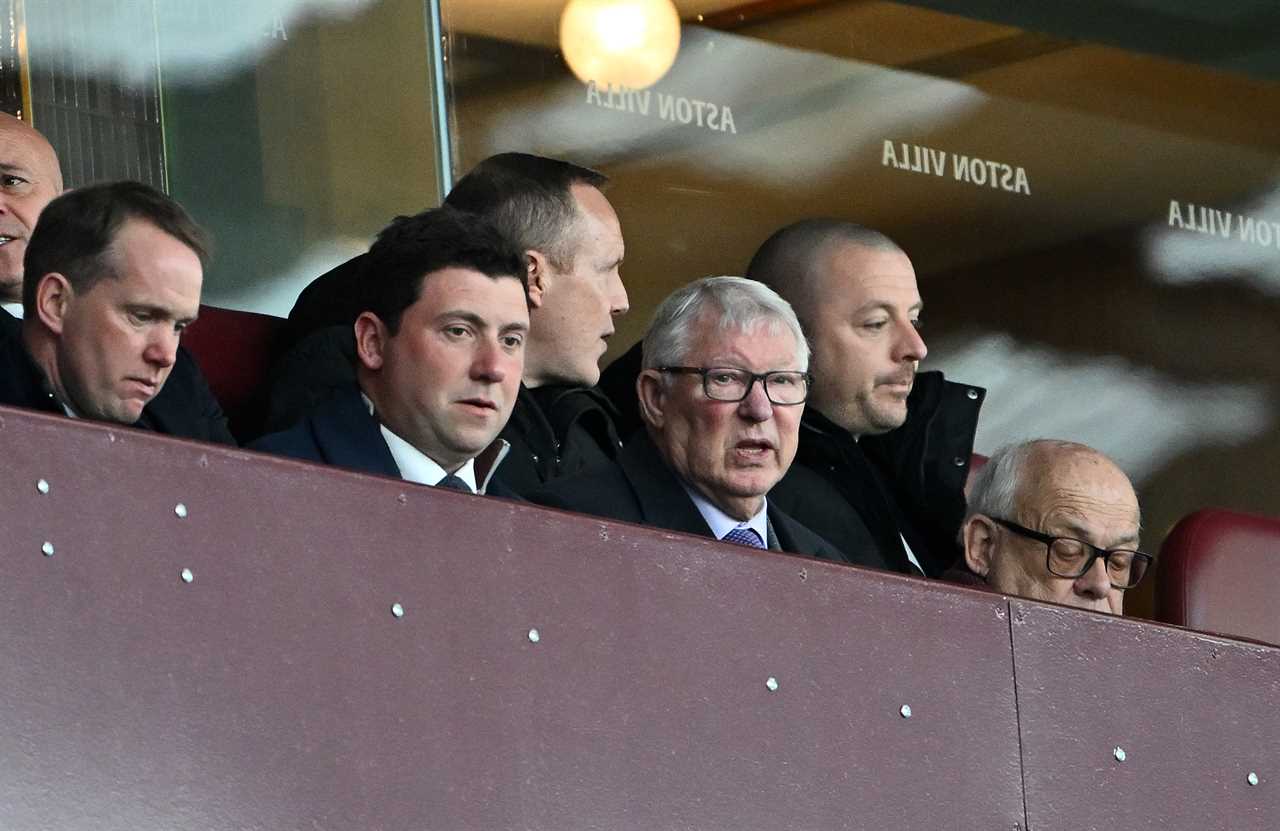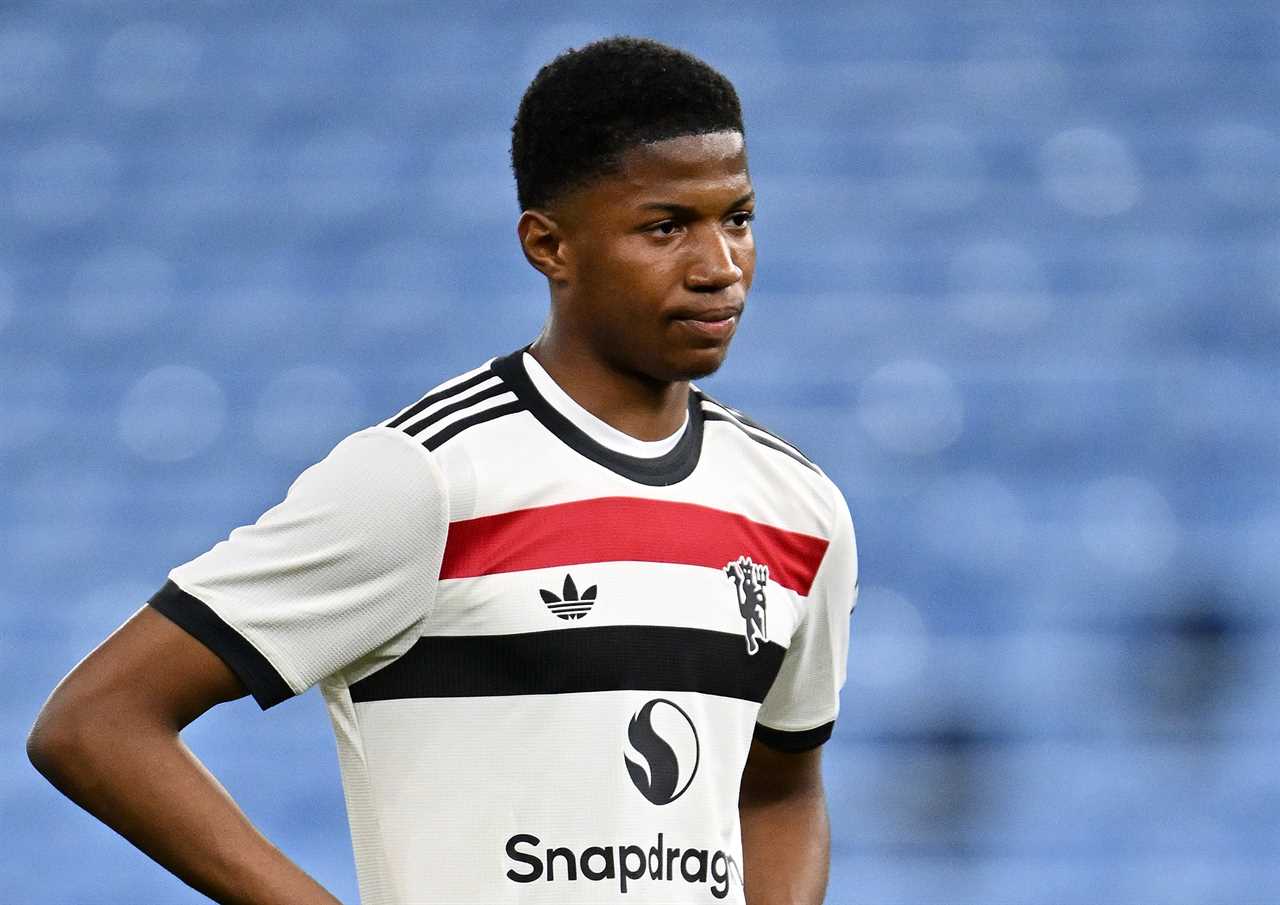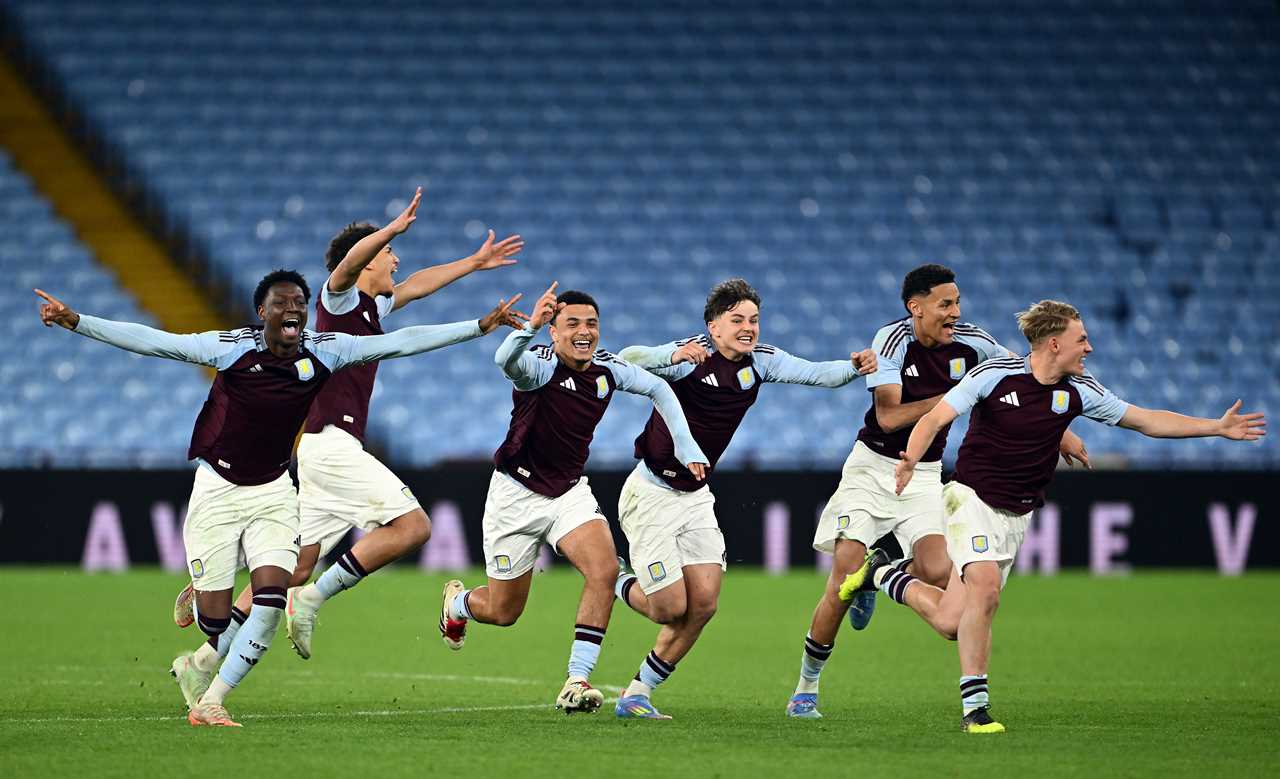
Legendary Manager at Villa Park
The iconic Sir Alex Ferguson made an attendance at Villa Park on Monday night, demonstrating his continued investment in Manchester United's future talents as the club's under-18 team faced off against Aston Villa in the FA Youth Cup semi-final.
Young Players Step Up in High-Stakes Match
Under the leadership of Adam Lawrence, the Man Utd youth team battled fiercely for a place in the final, which would have matched them against either Manchester City or Watford. Despite their numerous efforts, the match went down to a nail-biting penalty shootout, ultimately resulting in a 3-1 victory for Villa.
Promising Talent on the Field
The selection of Chido Obi in the starting eleven highlighted his potential inclusion in future senior matches. However, this choice also implies that Obi will sit out the imminent Premier League clash against Nottingham Forest. The team also featured Tyler and Jack Fletcher, the twin sons of former Reds legend and current coach Darren Fletcher, adding an extra layer of emotional investment to the match.
Road to the Semi-Final
Adam Lawrence's young squad had exhibited remarkable determination throughout the tournament, overcoming Coventry City, Preston North End, and Chelsea to reach the crucial semi-final stage. Their impressive run included a comeback victory against Arsenal in the quarter-finals, where they overturned a 2-1 deficit to win 3-2, showcasing their resilience and skill.

Strong Support from the Fans
Over a thousand dedicated Manchester United supporters purchased tickets for the semi-final, confident that a win would grant them the privilege of hosting the final match at the storied Old Trafford stadium. Among the passionate fans was Sir Alex Ferguson himself, who watched the proceedings closely from the executive boxes, visibly showing his engagement and concern over the game's outcome.
Early Setback and Equalizing Efforts
The match took a challenging turn for United when Trai-Varn Mulley of Aston Villa scored just four minutes into the game, putting the visitors ahead early on. However, the determined Manchester United side responded robustly when James Scanlon found the net after 23 minutes, leveling the score. Scanlon's goal was particularly significant, marking his third Youth Cup strike of the season and his 19th across all competitions, underscoring his potential as a rising star.
Heartbreaking Penalty Shootout
Despite James Scanlon's commendable effort to keep Manchester United in the game, the match extended into extra time and eventually to a penalty shootout. In the high-pressure shootout, Aston Villa emerged victorious with a 3-1 score, dealing a disappointing blow to both Sir Alex Ferguson and the young players who had worked tirelessly throughout the tournament.
Looking Ahead for the Seniors
While the youth team faced an unfortunate exit, Manchester United's first team, under the management of Rubin Amorim, are preparing for their upcoming fixture against Nottingham Forest in the Midlands. With over two weeks since their last match, the senior squad is focusing on securing a positive result and continuing their competitive season.

Frequently Asked Questions
How does one become a proficient football goalkeeper?
Becoming a proficient goalkeeper requires specialized training focused on reflexes, agility, and positioning. A goalkeeper should be proficient in stopping shots, commanding the penalty area with catching and punching skills, and distributing both with hands and feet. Goalkeeping is also a combination of mental resilience, making decisions under pressure, and communicating effectively with the defense. To master the art, you must practice regularly, get constructive feedback from your coaches and analyze your performances to identify improvement areas.
What are the best tactics to defend against a strong offensive team?
To defend against a powerful offensive team, you need a strategic and disciplined approach. Organizing a solid defensive line, maintaining compact team shape, and employing a disciplined marking system are fundamental tactics. Forcing opposing attackers toward the sidelines rather than the center can limit their scoring opportunities. Communication between defenders is key, as are quick defensive transitions when possession has been lost. The offensive team can use counter-attacking tactics to exploit any gaps created by the defensive team's commitment.
What strategies can I use to stay motivated and focused on improving my football skills?
To stay motivated and focused, it is important to set clear goals that you can achieve and track your progress. Regularly reviewing performance in training and match can help identify strengths and areas to improve. Finding a partner to train with or joining a team of players can encourage perseverance by creating supportive relationships. In addition, visualizing success and maintaining a positive outlook can be powerful motivators. Incorporating diversity in practice routines, allowing sufficient recovery and rest time and keeping practices interesting are important strategies for maintaining motivation and focus.
How can I improve my football technique effectively?
To improve your football technique, you must practice consistently and focus on the fundamentals. It is essential to regularly perform drills which improve ball control, accuracy passing and precise shooting. Spending time perfecting your less-skilled foot and improving balance through agility exercises can greatly improve your technique. Additionally, studying professional footballers and analyzing their movements, positioning, and decision-making can provide insight and help refine your own skills.
What role does a coach play in a football team's success?
A coach can play a crucial role in the success or failure of a team by developing effective training programs, implementing tactical plans and managing players. The coach's responsibilities include formulating effective training sessions, devising strategic game plans, and motivating players to perform at their best. Coaches make important decisions about player placement and selection, while also managing team dynamics to maintain a positive environment. Their leadership often helps teams overcome challenges and drive them to achieve success.
Statistics
- Football players who follow a structured fitness regimen can see up to a 7% increase in their on-field speed and agility benchmarks.
- A consistent mental focus regimen, including visualization techniques, can enhance player concentration levels by up to 20% during matches.
- Goalkeepers who engage in specialized reaction-time training reduce their goals-conceded tally by an average of 25% over a season.
- Studying match footage for at least 4 hours a week can lead to a 10% improvement in a player's tactical awareness on the field.
- Coaches who engage in continuous professional development contribute to a 40% better win ratio for their teams.
External Links
How To
How To Excel As A Football Goalkeeper
To be a successful goalkeeper you need to invest in your reflexes. You should also work on improving your diving technique and shooting skills. Participate in drills which improve your positional play and footwork to allow for quick and efficient movement around the goal. Practice controlling the penalty area and dealing with crosses to build confidence in your defence. Studying professional goalkeepers and watching video clips of your performance will help you to improve your game. Physical conditioning, particularly upper body strength and flexibility, is also crucial to prevent injuries and enable powerful dives and throws.
 CricketBoxingFormula 1GolfHorse RacingPremier LeagueTennisPrivacy PolicyTerms And Conditions
CricketBoxingFormula 1GolfHorse RacingPremier LeagueTennisPrivacy PolicyTerms And Conditions
